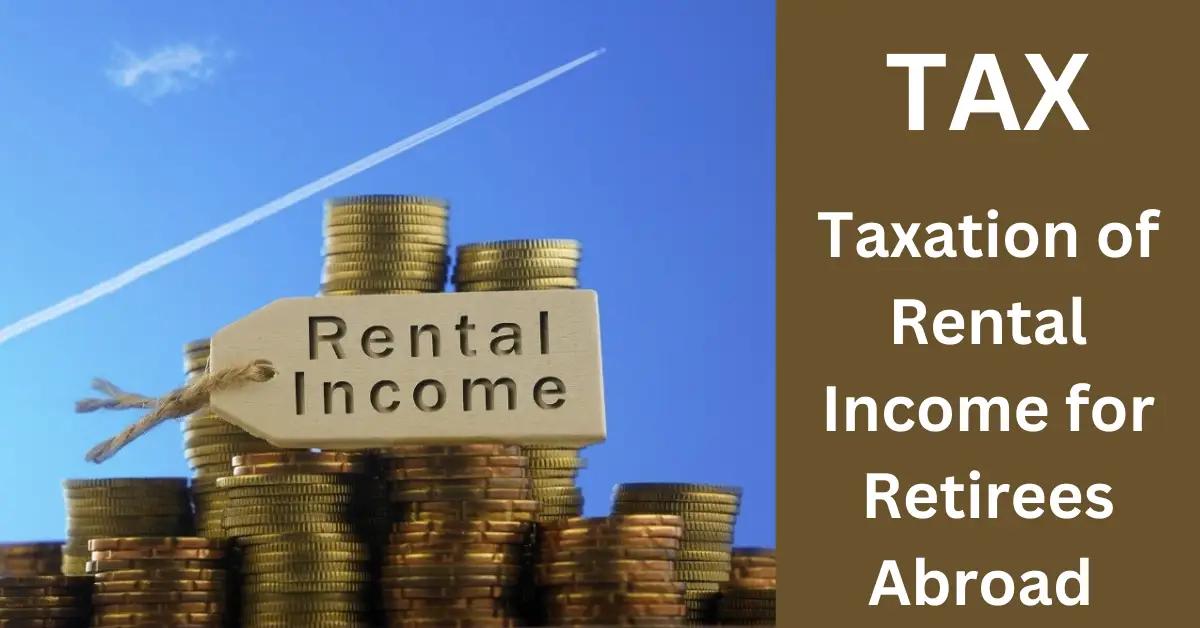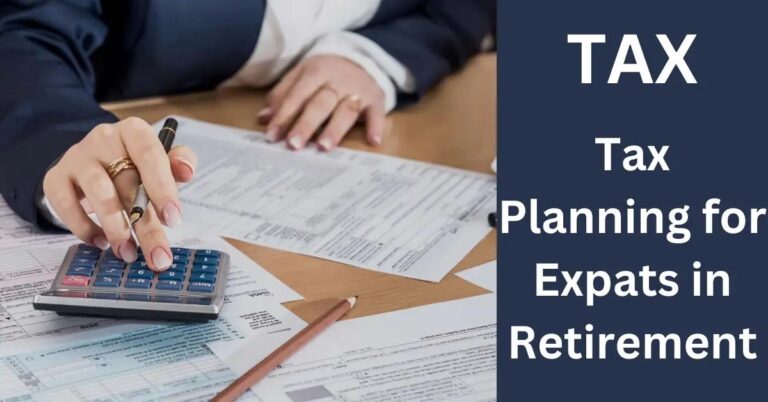TL;DR:
- U.S. citizens must report and pay taxes on worldwide rental income, including foreign earnings.
- Tax treaties with other countries can prevent double taxation on rental income.
- Retirees may face both U.S. and local taxes; consult a local tax advisor for specific rules.
- Foreign Earned Income Exclusion does not apply to rental income.
- Retirees can deduct certain rental property expenses like depreciation (40 years for foreign properties) and travel costs related to property management.
- Currency conversion and correct reporting of foreign rental income are crucial to proper taxation.
- Tax residency affects where taxes must be paid; dual-residency can lead to complications.
- Strategic tax planning is essential; consult advisors familiar with U.S. and international tax laws.
Navigating taxes on rental income as a retired expat can be tricky. You want to enjoy your time abroad without tax surprises. So, let's dive into what you need to know. Can U.S. citizens be taxed on rental earnings from overseas? How can double taxation agreements help you? We'll explore key deductions and the effects of currency conversion. Grab a chair, and let's make sense of expat taxes together.
Taxation of Rental Income: What Do Retirees Abroad Need to Know?
Are U.S. citizens taxed on foreign rental income? Yes, they are taxed on all income. This includes rental income from abroad. The United States taxes its citizens on worldwide income. So, if you're earning rental income overseas, you must report it to the IRS.
Now, let's dive deeper. The Internal Revenue Service (IRS) sees rental income as taxable. You need to file this on your U.S. tax returns. The Foreign Earned Income Exclusion doesn't apply because it excludes only earned income, not rental.
What taxes do retired expats pay? Retirees abroad face both U.S. and local taxes. In your host country, rental income could attract local taxes. Each country has its own tax rules. You must check with a local tax advisor for specifics.
Understanding tax obligations is crucial for retirees. Overlooked taxes lead to big headaches later. In some places, retirees may enjoy tax breaks. These depend on your host country's tax laws. Research or professional advice helps here.
Let's talk about double taxation. Double taxation happens when two countries tax the same income. Suppose your rental earnings get taxed at home and abroad. That's double taxation. It's a real issue for expats.
Luckily, tax treaties solve this problem. Many countries have agreements with the U.S. These treaties often prevent double tax on the same income. Always verify if your host nation has a relevant treaty. This saves you money and stress.
Lastly, don't forget about foreign rental income taxation. The IRS requires you to detail your tax situation. Forms like the 1040 include this info. The right documentation keeps tax affairs smooth.
Planning and understanding taxes is key. It's significant to stay informed on both U.S. and other tax laws. Consulting experts makes sense if taxes become too complex. This helps you avoid mistakes and ensures compliance.
How Can Double Taxation Agreements Benefit Retired Expats with Rental Income?
Have you ever worried about paying taxes twice on your rental income abroad? Double taxation agreements can help you here. These are deals between two countries to prevent you from being taxed in both places. They are made to protect people like you, with income in different countries. Imagine having a home in Spain and paying taxes there, only to pay again in the USA. Tax treaties save you from this headache.
So, how do these tax treaties for retirees work? They draw clear lines about who can tax your income. This can save you money and reduce confusion. The IRS Foreign Income and Tax Treaties page explains these clearly. For retirees receiving rental income, these treaties are a lifeline. Some treaties even give lower tax rates for retirees.
But how much foreign income is tax-free in the USA? Under the Foreign Earned Income Exclusion (FEIE), you might exclude some money from taxes. This applies mainly to earned income, not rental income. Yet, you can still benefit from treaties by preventing double taxing. Each tax treaty has its own rules, so check your specific country's agreement.
Want to use these agreements? Here is how. First, check if there is a tax treaty with your retirement country. Next, understand the details; each treaty has unique rules. The IRS Publication 54 can guide you through this. You must file for the treaty benefits using IRS Form 8833. It sounds complex, but it protects your hard-earned money from double taxes.
Remember, these tax treaties exist to help, so leverage them. By understanding these agreements, you ease your tax obligations. Seek a tax expert familiar with international rules if you need help. They can guide you to make the best decisions and ensure you comply with all local and foreign laws, protecting your finances and peace of mind.
What Rental Property Tax Deductions Can Retirees Utilize?
As a retiree with rental property overseas, you want to reduce your tax load legally. You might ask, what rental property tax deductions can you use? One of the most useful deductions is the property management expenses deduction. You can deduct costs like paying someone to handle tenant issues or perform repairs. This lowers your taxable income and helps you manage your property hassle-free.
Understanding depreciation can also save you money. The IRS allows different depreciation methods based on property location. You might wonder about foreign rental property depreciation for 30 or 40 years. The answer? For foreign properties, depreciation typically spans 40 years. This period is longer compared to domestic properties, which often use 27.5 years. Depreciation lets you spread out the property's cost over many years, which reduces yearly tax burdens.
Let's dig into other potential deductions. You could write off tax-related costs like mortgage interest, local property taxes, and insurance. Each of these can significantly reduce tax payments.
Moreover, travel costs linked to property management can also count. If you visit your property for necessary upkeep, those travel expenses may be deductible. Remember to keep every receipt related to property expenses, as this will help you justify your deductions.
Another question might arise: Are there any tips for reducing tax liabilities through legal deductions? Yes, a good tip is to plan long-term. Keep detailed records and make a note of every eligible deductible expense throughout the year. This helps when you're ready to file taxes.
Lastly, working with an experienced tax advisor familiar with international laws can greatly assist. They can ensure you use all available deductions and stay compliant. Resources like the IRS website can provide helpful information and updates about regulations, especially considering changes occur often.
In conclusion, deductions for rental property overseas are key for retirees. By recognizing eligible expenses, understanding depreciation, and keeping thorough records, you can significantly lower your tax responsibilities.
How Does Currency Conversion Affect Taxation of Rental Income?
When living abroad, managing your rental income can become tricky. Let's talk about currency conversion. This process can impact how much rental income you report. If the value of your home currency changes, so does the income amount. You must convert your foreign income to U.S. dollars. This conversion is necessary for accurate reporting of foreign rental income on your 1040 form.
Do you have to pay taxes on foreign retirement income? Yes, you do. The IRS requires reporting in U.S. dollars. Even if you earn in another currency, convert it. How does this work? Use the exchange rate on the date you received the income. This ensures the correct tax obligation. It's important to handle it correctly to avoid penalties.
Now, let's think about foreign exchange risks in rental income. Fluctuating exchange rates can impact your earnings. If your income is in a foreign currency, changes can affect your dollar value. Consider strategies to manage this risk. Hedging financial instruments or using multi-currency banking could help. These methods help stabilize your rental income's value.
Inflation also plays a role in your tax strategy. More inflation means your money's value changes over time. This situation can affect the cost of living and future expenses. To combat inflation's impact, update your tax planning often. Adjust your strategies to account for any inflationary changes.
Finally, let's cover the accurate reporting of foreign income on IRS forms. Always convert foreign earnings to U.S. dollars for your taxes. Use the daily exchange rate or an average rate for the year. Document each step you take. This record-keeping helps ensure correct reporting.
Understanding currency conversion, foreign exchange risks, and inflation is vital. Each factor shapes how you handle your rental income abroad. Take steps to manage these aspects well and stay ahead in your tax planning. Remember, accurate tax filing avoids surprises down the road.
What Are the Implications of Tax Residency Status on Rental Income?
Tax residency status plays a crucial role in taxation and impacts your rental income abroad. Your tax residency status determines where you must pay taxes. It affects how your rental earnings are taxed and treated by different countries.
What taxes do retired expats pay? As a retiree with rentals abroad, you'll pay taxes where you reside and may owe taxes in your home country. Understanding your specific tax residency can help avoid unnecessary tax complications and ensure you comply with both domestic and international tax laws.
To determine your tax residency, consider where you spend most of your time, where your home base is, and the nature of your ties (like property or family). Each country has its own rules for determining tax residency. For example, some countries require you to spend 183 days there to count as a resident for tax purposes.
For many retirees, having property in different countries can create dual-residency challenges. Dual residency means that two countries may consider you a tax resident, leading to potential tax obligations in both places. This situation can lead to complex tax problems like double taxation, which should be avoided whenever possible.
Do I have to pay taxes on foreign retirement income? Yes, most often, you must pay taxes on rental income you earn from properties abroad. However, some countries have treaties to avoid double taxation. Check the specific agreements between your residence and home country.
To maintain tax efficiency, ensure you stay informed about your tax residency status and adjust your plans accordingly. Consider seeking advice from a tax expert familiar with international tax laws to help navigate these waters. They can help you manage tax responsibilities properly and possibly leverage any tax treaties available.
Plan strategies like choosing the right country for tax residency, using allowable deductions, and understanding tax obligations in both home and foreign countries. Doing this helps maximize your rental income while minimizing tax liabilities, ensuring a smooth and financially healthy retirement experience abroad.
What Strategic Tax Planning Measures Should Retirees Consider?
When I retired abroad, tax planning became essential. You might wonder, do I need to pay U.S. taxes on my foreign rental property? The answer is yes, even if the property is overseas. The IRS expects you to report all your global income. Now, let's talk about strategic planning to make things easier and more efficient.
Firstly, tax-efficient investment strategies are crucial when buying property overseas. Invest in countries with tax-free retirement benefits or low property taxes if possible. This reduces your tax burden significantly. Research tax-free retirement countries to make informed choices.
Next, consider retirement income tax efficiency while living abroad. Plan your income streams carefully. Use tax-efficient withdrawal strategies from retirement accounts to minimize taxes. Using local tax advisors who understand both U.S. and foreign tax laws can be helpful.
Leverage tax incentives and credits available in many countries. Some nations offer credits or deductions for property improvements or sustainable investments. Utilize these to optimize your tax payments. This approach can lead to significant savings.
Finally, creating a comprehensive tax strategy is vital. This involves understanding both U.S. and foreign tax systems, deductions, and credits. Combine this knowledge with your investment strategies to optimize tax payments. Use the Foreign Tax Credit to claim credits for taxes paid overseas. This can avoid double taxation and lower your overall tax liability.
For detailed strategies, consider exploring more about tax planning for retirees and expatriates. External Link. This can make managing your finances abroad more straightforward and efficient. Taking time to plan carefully can lead to tax savings and peace of mind.
Conclusion
Understanding expat rental income taxes is crucial for retirees abroad. We've covered U.S. tax laws on foreign rental income, explored how double taxation agreements can help, and highlighted key deductions. Currency conversions and tax residency status play pivotal roles in managing your obligations. Strategic tax planning is essential for efficient real estate investments. By mastering these elements, you can legally reduce tax liabilities and ensure a more financially secure expatriate life.












